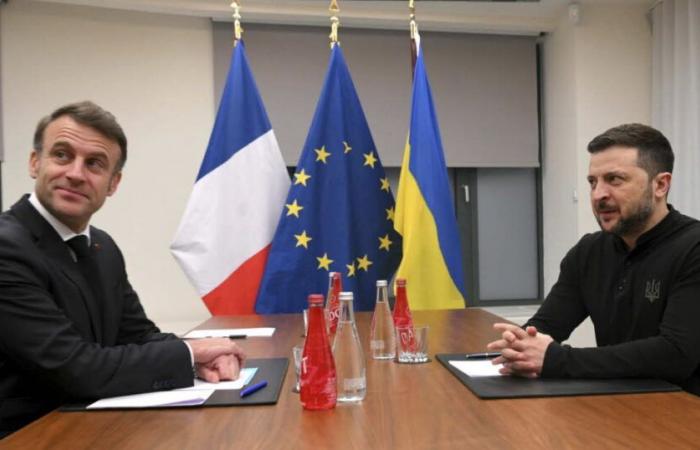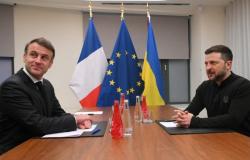Ukraine and European countries are preparing with concern for the return of Donald Trump in a little over a month. The upheavals caused by the end of Joe Biden’s mandate and the vagueness surrounding that of his successor were at the center of the NATO mini-summit bringing together Ukrainian President Volodymyr Zelensky and the main European leaders this Wednesday evening in Brussels.
Emmanuel Macron had to leave earlier than planned due to his trip to Mayotte which will also prevent him from participating in the European Council scheduled for Thursday and where he will be exceptionally represented by German Chancellor Olaf Scholz. Before flying to the department ravaged by Cyclone Chido, the French president had a meeting with Volodymyr Zelensky.
Fear of an unfavorable truce for Ukraine
The Ukrainian president and his European counterparts fear a halt to US support for Ukraine after Donald Trump takes office. The US president-elect suggested he was going to bring peace without saying how he planned to do it. Ukraine fears being pushed into negotiating a truce that would not respect its sovereignty and long-term security requirements.
Several countries, including France and Germany, have begun discussing sending European troops to Ukraine to monitor compliance with a possible ceasefire. “The European bloc has already agreed on a first priority: it must do everything possible to convince Donald Trump that Ukraine must enter the negotiations from a position of strength and that a bad deal for Ukraine would make him appear weak on the international scene,” explains Mujtaba Rahman, director for Europe of analyzes of the Eurasia group, in an article on the Politico website.
A risk of a “mini-Munich”?
“The biggest fear is that the negotiations on the future of Ukraine will turn into a ‘mini-Munich’, conducive to new Russian aggression,” adds the analyst, in reference to the Munich Accords which had played into the hands of Adolf Hitler in September 1938 by sacrificing Czechoslovakia without preventing the Second World War.
Faced with the threats posed by Donald Trump, the countries of the European Union are seeking to display their cohesion, even if it is already undermined by countries like Hungary or Slovakia which oppose aid to Ukraine. Hungarian Prime Minister Viktor Orban, who currently holds the rotating presidency of the Council of the EU, telephoned Vladimir Putin on December 11 as part of what he calls “a peace mission” for which he received no no mandate from other European countries.
Proponents of increased support for Ukraine are pressuring European leaders to provide more aid to kyiv at a time when military momentum is on Russia’s side. Vladimir Putin this week claimed the conquest of 189 Ukrainian localities in 2024.






